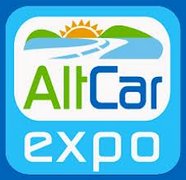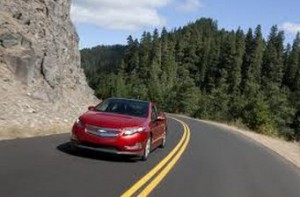 Christine Dzilvelis, one of the partners who organizes AltCar Expo in Santa Monica, Calif., has a different perspective on what constitutes a successful community event than what I wrote about recently. For example, on Friday afternoon, September 20, during AltCar Expo, a speaker panel on electric vehicle charging stations at multi-family housing units led to action being taken by stakeholders. The intensive three hour discussion led to a planned installation in Santa Monica; key players like Schneider Electric began working out the details.
Christine Dzilvelis, one of the partners who organizes AltCar Expo in Santa Monica, Calif., has a different perspective on what constitutes a successful community event than what I wrote about recently. For example, on Friday afternoon, September 20, during AltCar Expo, a speaker panel on electric vehicle charging stations at multi-family housing units led to action being taken by stakeholders. The intensive three hour discussion led to a planned installation in Santa Monica; key players like Schneider Electric began working out the details.
Dzilvelis said the feedback the organizers are getting is appreciation from local residents and from stakeholders such as automakers on hosting a grass roots, hands-on annual event. People are overwhelmed by all of the new technologies, and AltCar Expo makes it easier for fleets, industry, and the public to experience the vehicles and have their questions answered. “AltCar Expo is not a business to make money,” she said.
What seems to be working best is strong local/regional events. Alternative Clean Transportation (ACT) Expo and Electric Vehicle Symposium (EVS) have been receiving kudos, but other national events like Green Fleet Conference & Expo and Plug-in 2013 are only getting small-to-medium attendance that are very supplier-intensive. ACT Expo is getting better feedback, but there’s still a lot of concern that it’s dominated by CNG vehicles. AltCar Expo, now in its eighth year, gets positive feedback for playing a role in pushing alternative fuel vehicles forward by bringing together leaders in government, fleets, automakers, and infrastructure, along with local residents who are very interested and supportive of having this event each year. This year, they especially loved seeing and driving the Chevrolet Spark EV, Dzilvelis said.
Dzilvelis is part of two other events with similar goals for public education and bringing stakeholders together. The first annual Northern California AltCar conference will be taking place March 14-15, 2014 at the Craneway Pavilion (a former Ford plant) in Richmond, Calif.; it’s sponsored by the Bay Area Air Quality Management District. On March 28-29, 2014, the fifth annual Texas AltCar conference will be held at the Irving Convention Center in Irving, Texas, and is being sponsored by Dallas Fort Worth Clean Cities. (Next year’s AltCar Expo will be taking place Sept. 19-20, 2014.) AltCar Expo organizers are being contacted regularly by stakeholders in cities across the country that want to get their own AltCar conference going. It does seem to be the most realistic event model for bringing the technology and experience to a lot more people.

